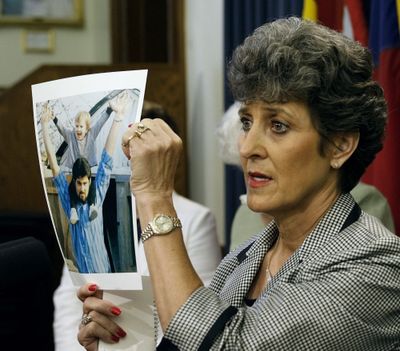Panel to review death penalty case
Expert questions arson finding that led to execution

CORSICANA, Texas – More than five years after his final act from the Texas death chamber gurney was a profanity-filled tirade, the murder case of executed inmate Cameron Todd Willingham refuses to die.
Willingham was executed in February 2004 – proclaiming his innocence and hoping aloud that his wife would “rot in hell” – for the deaths of his three young daughters in a fire at their Corsicana home on Dec. 23, 1991.
An arson finding by investigators was key to his conviction in the circumstantial case.
The Innocence Project, a nonprofit legal organization that investigates possible wrongful convictions, questioned Willingham’s guilt. Now the Texas Forensic Science Commission will review a report Friday from an expert it hired who concluded the original arson determination was faulty.
The prosecutor in the case still believes Willingham is guilty, but acknowledges it would have been hard to win a death sentence without the arson finding.
Yet Barry Scheck, co-director of the New York-based Innocence Project, sees it differently: “There can no longer be any doubt that an innocent person has been executed.”
In 2006, Scheck’s group gave its review of the case to the state commission, which later hired Baltimore-based arson expert Craig Beyler to study. Beyler concluded the arson finding was scientifically unsupported and investigators at the scene had “poor understandings of fire science.”
John Jackson, the prosecutor in Navarro County, about 50 miles south of Dallas, says the original fire investigation was “undeniably flawed,” based on subsequent reviews, but remains confident Willingham was guilty of killing Amber, 2, and 1-year-old twins Karmon and Kameron.
“What people missed is that even though the arson report may be flawed, it certainly doesn’t mean it arrived at a faulty conclusion,” Jackson said.
Douglas Fogg stands by his conclusions as the former assistant fire chief who helped investigate the deadly blaze.
“The bleeding hearts that are against the death penalty are trying to stir everything up again,” he told the Dallas Morning News last month. “They finally got someone who would say what they wanted to hear.”